RESEARCH, DISCOVER,
BE AMAZED
Science at experimenta is hands-on. Together we discover the stars, build a solar-powered car, and journey through the human body.
RESEARCH, DISCOVER, BE AMAZED
Science at experimenta is hands-on. Together we discover the stars, build a solar-powered car, and journey through the human body.
RESEARCH, DISCOVER, BE AMAZED
Science at experimenta is hands-on. Together we discover the stars, build a solar-powered car, and journey through the human body.
Learning
Our offerings at a glance
Offerings for daycare centers
Children are curious by nature. They want to understand how everything around them works: Why does the moon shine so brightly? How does a rainbow get into the sky? And why does a ball always fall to the ground? At experimenta, youth and children can discover the answers on their own. Our offerings support them in exploring the world – whether in an individual laboratory course or our world program.
School programs
The aim of our wide range of school programs is to encourage students to develop ideas, be creative, and pursue solutions. From a single laboratory course to an all-day experience, from first grade to secondary school, from the apple adventure to cancer diagnostics – there are many possibilities. At experimenta, educators will find the right program for their classes. We are happy to put together a customized package based on the subject of your choice.
World program
By taking part in our world program, daycare children and school classes experience a subject in all its many aspects. They embark on a day-long discovery tour. Laboratory or observatory, experimental theatre or our exhibition – we put together an individual program for each group. Or you may choose from our existing themed programs.
Laboratory courses
What happens when you mix paint colors? Who can build the best bridge? And how can DNA analysis be used to convict suspects? In our laboratories, children and youth can experience hands-on science. Here they can conduct experiments on their own and get to the bottom of things. In our experimental kitchen, they can make gummy bears or bake savory treats in the oven. Our more than 70 laboratory courses cover many of the subjects included in Baden-Württemberg’s education plans.
Download lab course flyer (4 MB)
The flyer is in German
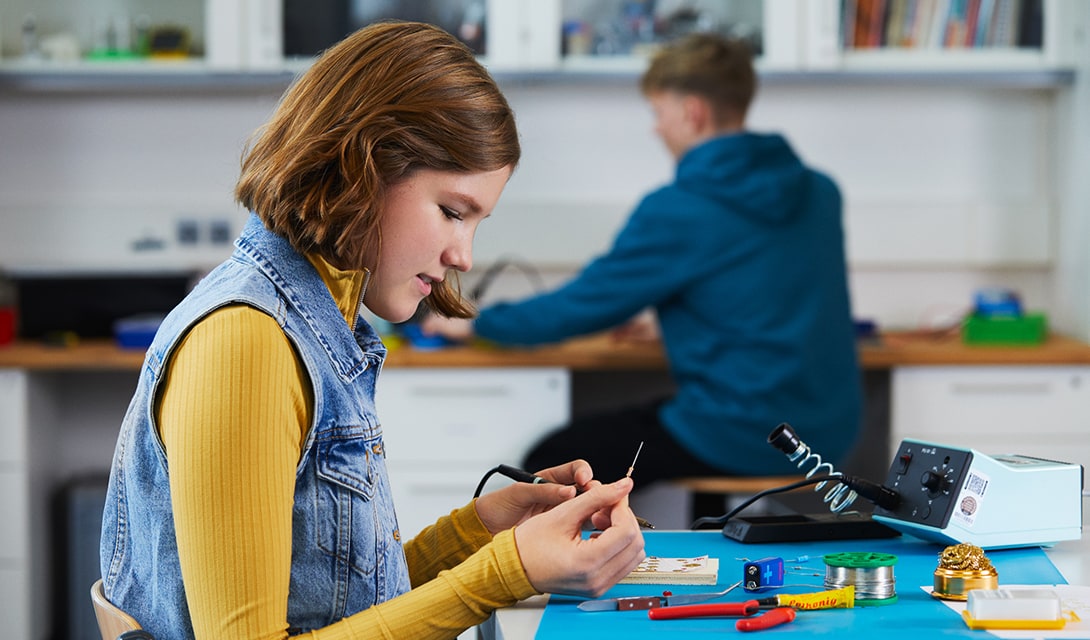
The Robert Mayer Laboratory houses the field of physics and offers space for up to 32 students in grades 5 to 13. The lab is equipped to investigate virtually all themes in physics relevant to the curriculum. A special feature: Using RGB lighting, the room can be immersed in colored light by mixing the primary light colors of red, green, and blue.
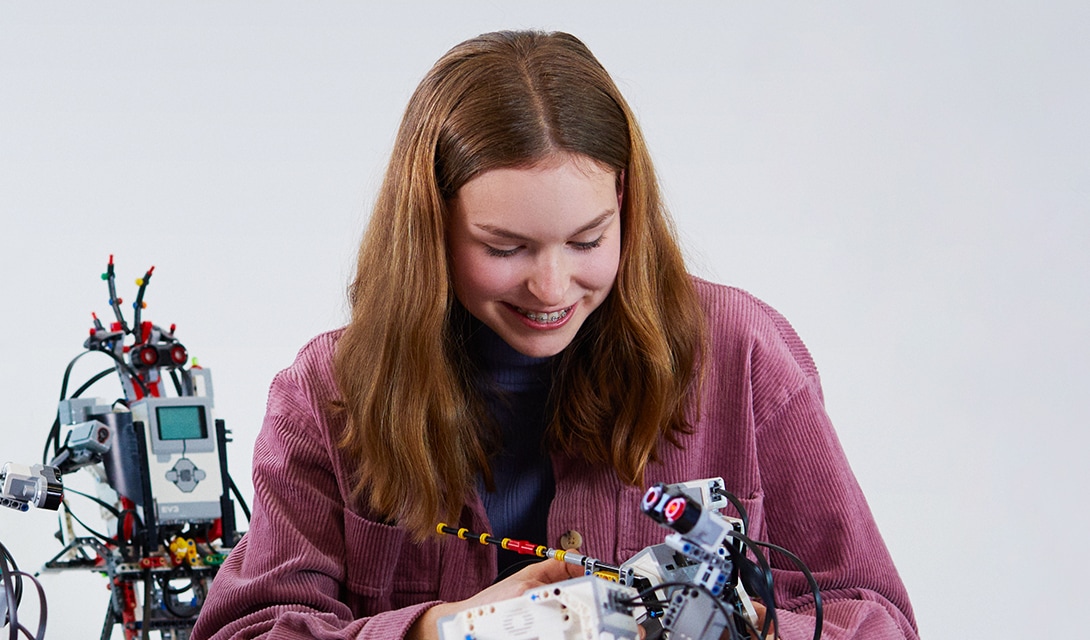
In 100 square meters, the Wilhelm Maybach Laboratory offers students in grades 5 to 10 virtually everything for the field of technology that is in the school curriculum. The laboratory is designed for working in small groups and, among other things, has a laser cutter and a 3-D printer.
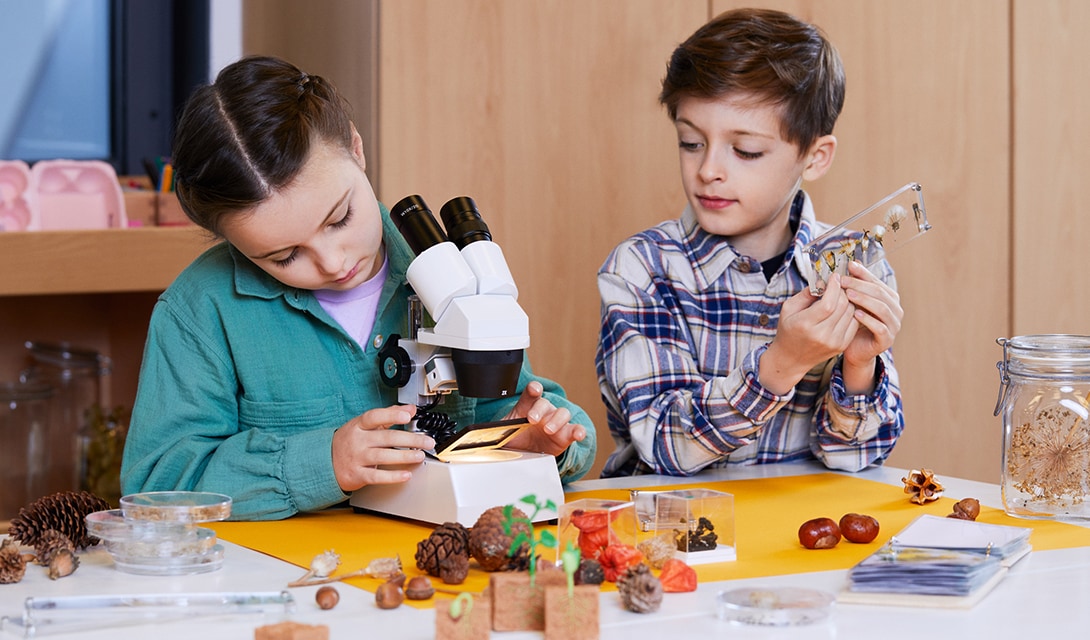
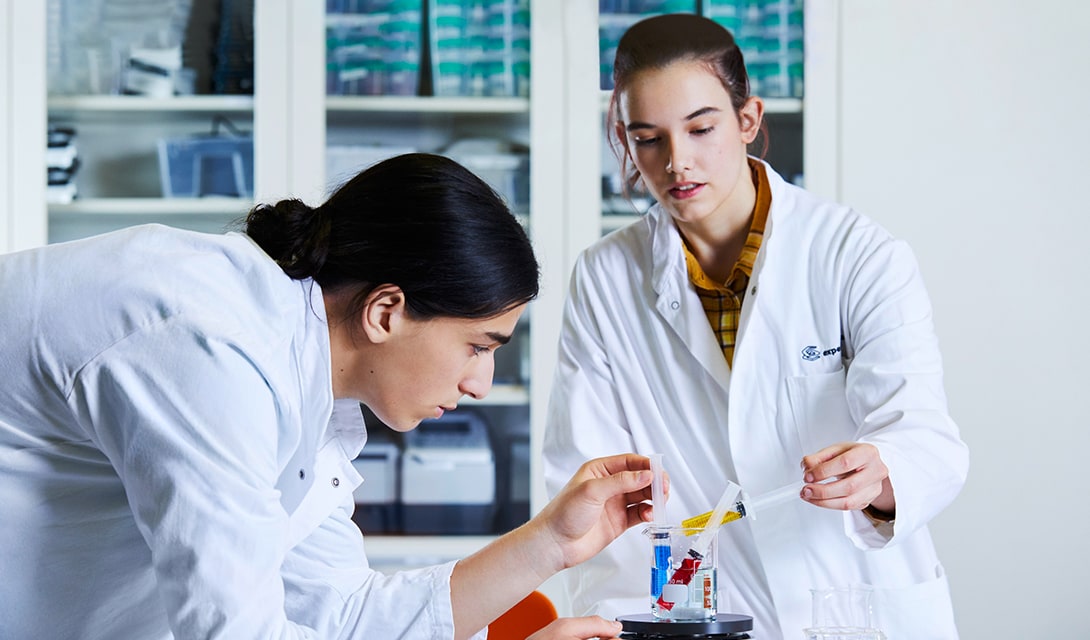
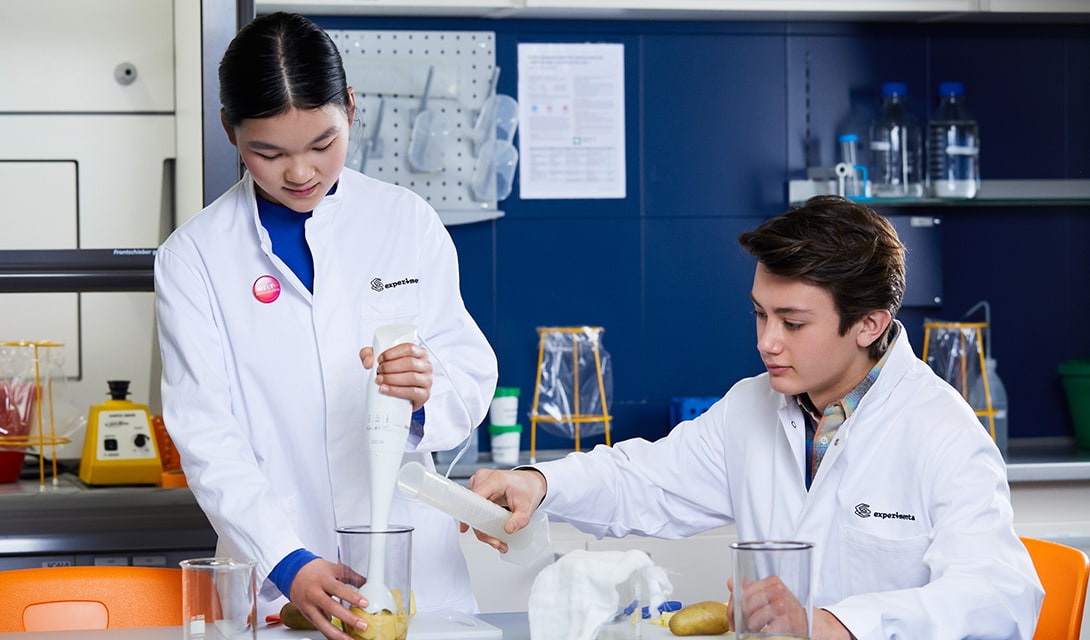
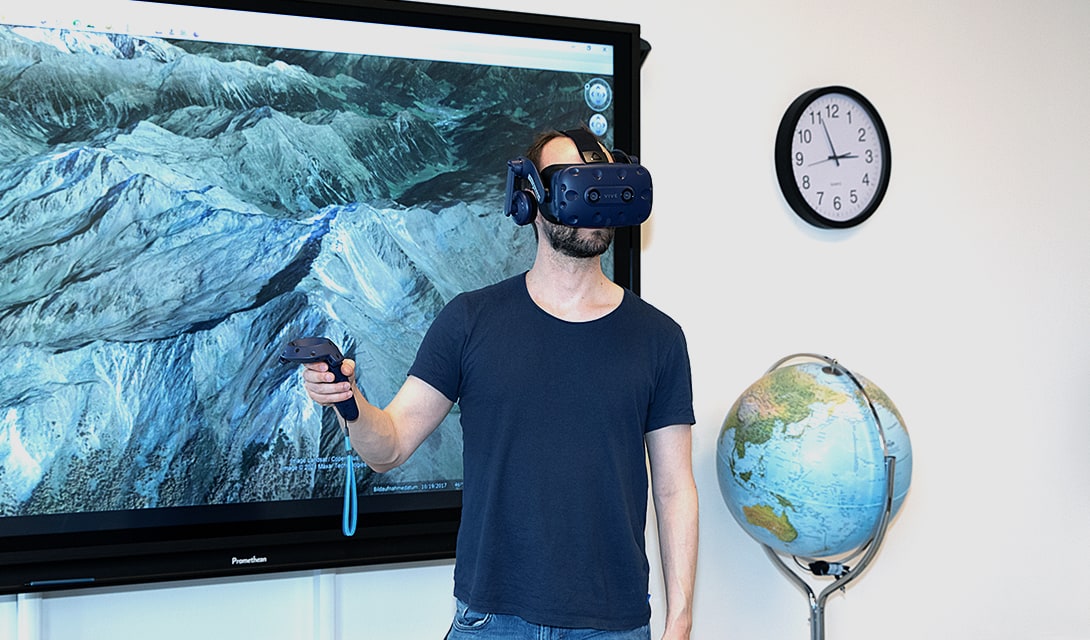
The Konrad Zuse Laboratory offers 32 workspaces with powerful computers. All participants can work on their own individual PCs. One of the lab’s main subject areas is geoinformatics, but astronomical date can also be processed. The course leader can oversee and influence the workstations from a central PC.
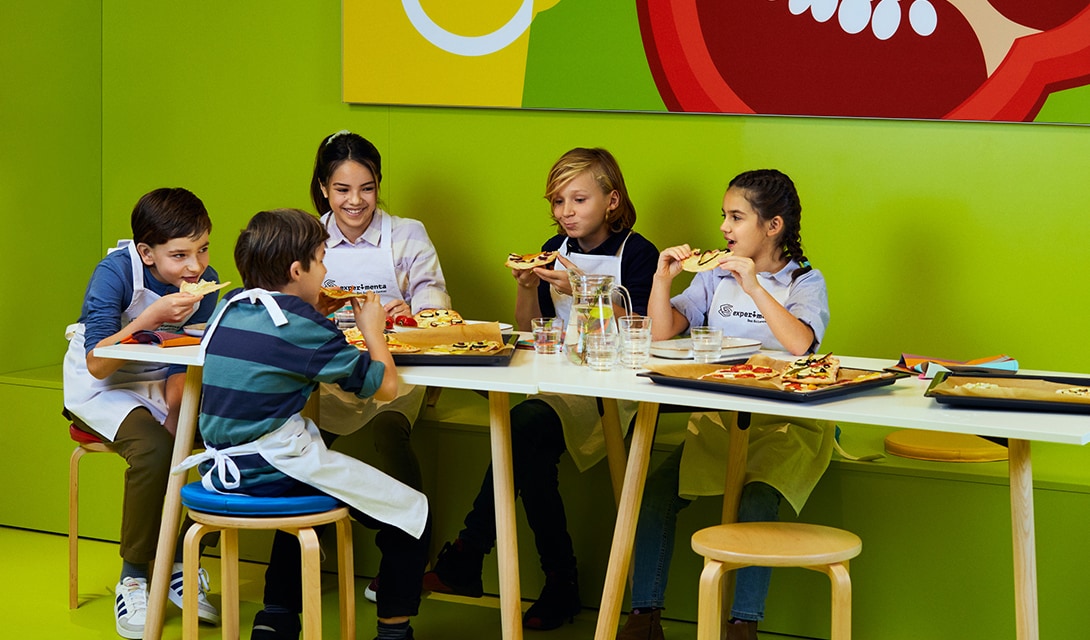
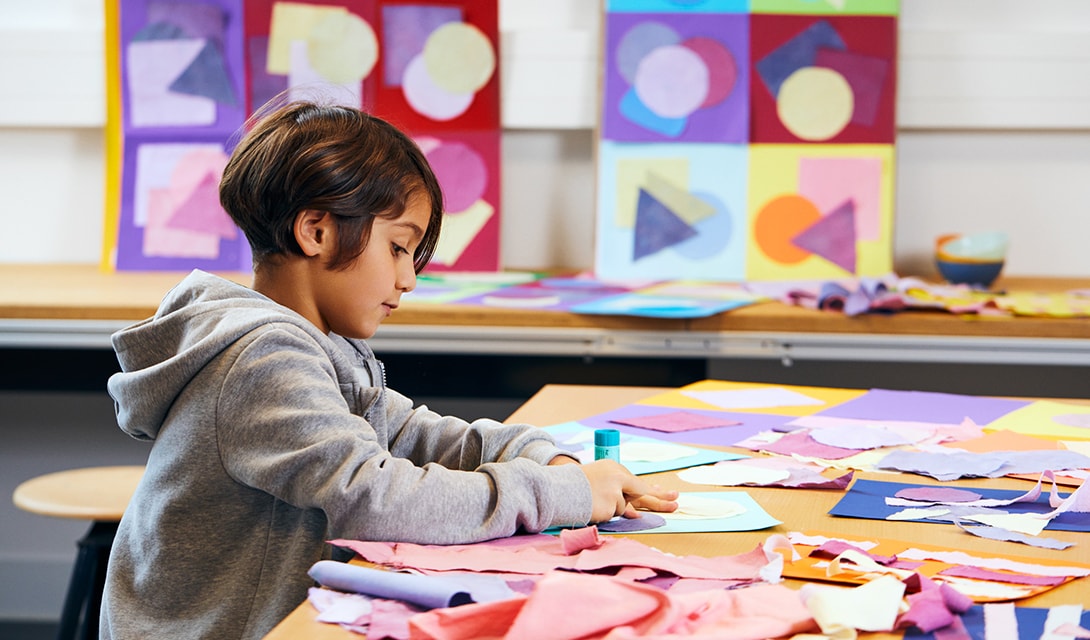
In the Archimedes Laboratory children from three to six can discover the world. They delve in at carefully selected and thoughtfully designed stations at their own pace and find out, for example, how magnetism functions. Our educational assistants’ support for the children is characterized by a nuanced variety and respect.
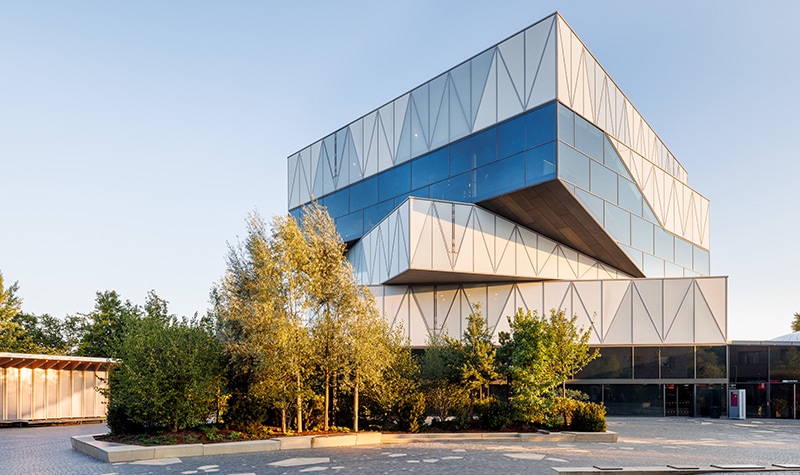
More individual offers
Conduct exciting experiments in a laboratory course or explore our exhibition – experimenta’s individual offerings also provide fascinating insights and aha moments. Daycare groups can fly to the moon in exclusive performances in the experimental theatre, school classes can immerse themselves in the world of molecules in the Science Dome. Our observatory also offers a fascinating view of the universe during the day and can be visited by appointment.
Offers outside the school
If you fancy solving riddles and challenges outside of school, you’ve come to the right place. At the Youth Research Centre, the motto is: Simply do research! At experimenta, young people can pursue their own STEM projects, either on their own or in small groups. Anyone who wants to can submit their research work to competitions such as Jugend forscht. In the Maker Space, creative minds age 14 and over will find space, machines, and materials in five workshop laboratories where they can program or plot, solder or saw, sew or film.
Creative competitions
for young STEM talent
Who can build the fastest vehicle? Whose research project in chemistry or biology is the most impressive? experimenta hosts various competitions in the STEM disciplines (science, technology, engineering, mathematics). Children and teens can experiment here with like-minded STEM enthusiasts and put their ideas into practice.
Jugend forscht
Your Subtitle Goes Here
We support and encourage scientific curiosity! experimenta together with the natec Landesverband of Baden-Württemberg for youth education in natural science and technology is one of the institutions that sponsors the state’s Jugend forscht science competition. This competition gives talented young science enthusiasts in Baden-Württemberg an ideal platform on which to present their research projects to a jury of experts. The winners of the regional contest qualify for the competition’s state finals which takes place annually in March. The winner of the state level goes on to the federal contest. In 2024, the national finals took place at experimenta from May 30 to June 2.
First Lego League
Your Subtitle Goes Here
The First Lego League (FLL) is a global research and robotics competition for teams. Children and young people design, build and program a fully automatic Lego robot that must master brainteasing missions within a robot game. The teams also develop solutions to a real-world problem. Fundamental values such as inventiveness or teamwork are also rated. The FLL Regional Competition Heilbronn takes place in January at experimenta. There are two categories: FLL Explore for children ages 6 to 10 and the FLL Challenge for youth between the ages of 9 and 16. Both competitions provide exciting insights into the world of robotics, science, and the colorful bricks.
Solar vehicle building competition
Your Subtitle Goes Here
During the annual solar vehicle building competition, youth immerse themselves in the world of technology in a playful way. experimenta supplies a drive set to be used in the building of the vehicle (free-of-charge, email orders accepted starting in January). The set includes a solar cell, an electric motor, a pinion, and a gear. It is then that creativity and inventive talent are called for. On the day of the competition, the teams meet at a racetrack with the solar vehicles they have designed and built themselves. The team with the fastest vehicle wins. There is also a creativity prize for the most unusual design as well as a technology prize for the best design. Participation is open to children in grades 5 to 10.
Educational offerings / Educator training
It is not easy to keep track of all our offerings. The best thing for educational professionals to do is come and see for themselves what experimenta has to offer and get to know our Science Centre as an extracurricular place of learning – whether on an excursion with their colleagues or during an individual consultation. Educational staff also receive an annual pass to experimenta free of charge, which they can use both professionally and privately. This means they can visit the exhibition at any time or explore the newest innovations in the Science Dome.
Educational memberships
With an experimenta membership, daycare centers and schools can receive further benefits at experimenta. Schools may also join our partner program, in which we maintain close contact and provide information about events and our latest offerings.
Discover more
Only available in German
Advice
Your contact for daycare and school communication
Are you interested in the world program? Or would you like to explore experimenta with your daycare center group in your own way? Are you interested in finding out more about our accessibility and barrier-free program for disabled persons? Do you have general questions about our offerings or a visit to experimenta? Then we look forward to hearing from you at schulkommunikation@experimenta.science.
Download for accessibility offerings
Only available in German
Information about your experimenta educational visit
Only available in German
Visitor service
We are happy to help you personally with your planning and questions.
Would you like help planning your visit? Do you have questions about our offerings or neeed help booking your tickets? Contact us – by phone or email. Weekdays from 9:00 a.m. to 5:00 p.m. We are happy to help!
Phone number +49 (0) 7131 88795 – 0
Email address info@experimenta.science
Plan your visit
Admission
Opening hours
Directions
Admission
Opening hours
Directions